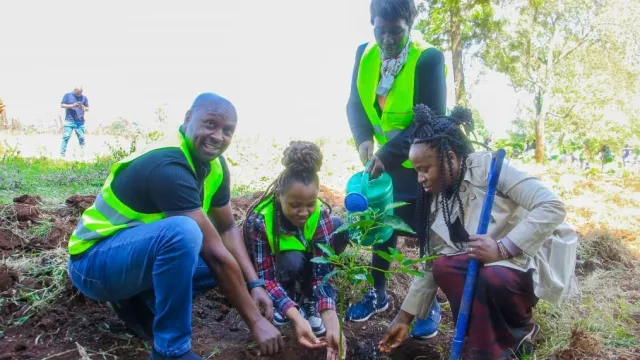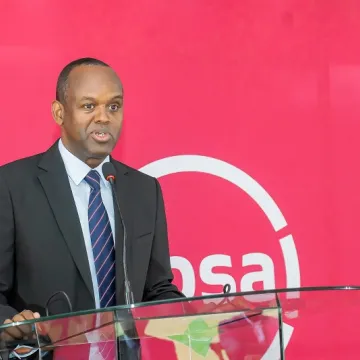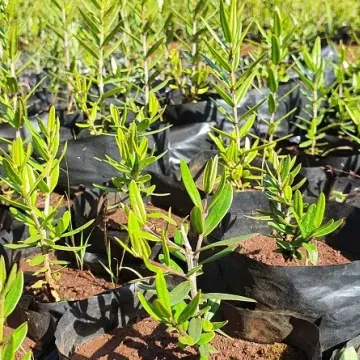Safaricom invests Sh15 million in biodiversity restoration project

From left James Maitai, Chief Technology Information Officer of Safaricom PLC, Nelius Wangui, a student from the UoN Kabete Campus; Professor Margaret Hutchinson, Acting Vice Chancellor of the University of Nairobi,and Professor Adelaide Lusambili of the Next Gen for Earth initiative, plant a seedling together. This collaborative action launched the biodiversity restoration project at the University's Lower Kabete Campus, underscoring a shared commitment to environmental stewardship.
Safaricom has announced a KES15 million investment in a Biodiversity Restoration Project aimed at mitigating the environmental impact its network expansion may have.
Through the two-year initiative which seeks to balance the growing demand for digital connectivity with a commitment to environmental responsibility, Safaricom will partner with both public and private institutions that host its Base Transceiver Stations (BTS) to grow 250,000 indigenous and fruit trees across 7,000 BTS sites.
“As we expand our network to connect more Kenyans to reliable voice and internet services, we recognise that some of our activities, such as building base stations and laying fiber, can have unavoidable effects on the environment. Through this project, we are reaffirming our commitment to environmental stewardship by working with communities, public institutions, and private sector partners to restore ecosystems and advance our decarbonisation journey,” said Dr Peter Ndegwa, Chief Executive Officer, Safaricom PLC.
The initiative is also part of Safaricom’s broader sustainability agenda and its goal to become a net-zero carbon emitting company by 2050. It also aligns with Kenya’s National Climate Change Action Plan and the United Nations Sustainable Development Goals on climate action and life on land.
“Our investment in biodiversity restoration is a testament to our belief that technology and sustainability can co-exist. By integrating environmental protection into our operations, we are creating shared value for our business, communities, and the planet,” Dr Ndegwa said.
In addition to the Biodiversity Restoration Project, Safaricom has an ongoing tree growing initiative in partnership with the Kenya Forest Service that aims to grow 5 million trees by 2030 through reafforestation of at least 5,000 hectares of degraded forests.
So far, the company has grown over 2.5million trees across the country covering more than 2,000 hectares of land.





